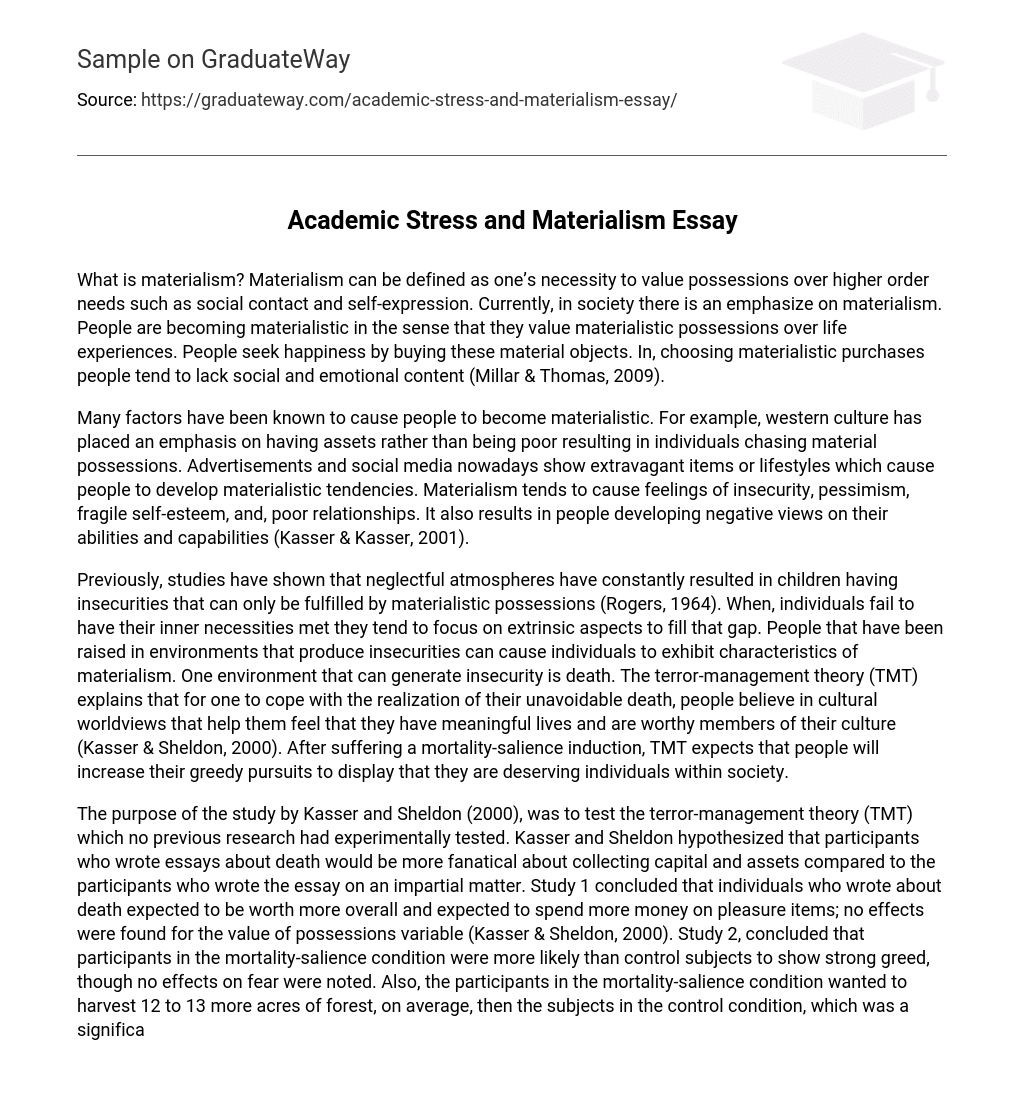What is materialism? Materialism can be defined as one’s necessity to value possessions over higher order needs such as social contact and self-expression. Currently, in society there is an emphasize on materialism. People are becoming materialistic in the sense that they value materialistic possessions over life experiences. People seek happiness by buying these material objects. In, choosing materialistic purchases people tend to lack social and emotional content (Millar & Thomas, 2009).
Many factors have been known to cause people to become materialistic. For example, western culture has placed an emphasis on having assets rather than being poor resulting in individuals chasing material possessions. Advertisements and social media nowadays show extravagant items or lifestyles which cause people to develop materialistic tendencies. Materialism tends to cause feelings of insecurity, pessimism, fragile self-esteem, and, poor relationships. It also results in people developing negative views on their abilities and capabilities (Kasser & Kasser, 2001).
Previously, studies have shown that neglectful atmospheres have constantly resulted in children having insecurities that can only be fulfilled by materialistic possessions (Rogers, 1964). When, individuals fail to have their inner necessities met they tend to focus on extrinsic aspects to fill that gap. People that have been raised in environments that produce insecurities can cause individuals to exhibit characteristics of materialism. One environment that can generate insecurity is death. The terror-management theory (TMT) explains that for one to cope with the realization of their unavoidable death, people believe in cultural worldviews that help them feel that they have meaningful lives and are worthy members of their culture (Kasser & Sheldon, 2000). After suffering a mortality-salience induction, TMT expects that people will increase their greedy pursuits to display that they are deserving individuals within society.
The purpose of the study by Kasser and Sheldon (2000), was to test the terror-management theory (TMT) which no previous research had experimentally tested. Kasser and Sheldon hypothesized that participants who wrote essays about death would be more fanatical about collecting capital and assets compared to the participants who wrote the essay on an impartial matter. Study 1 concluded that individuals who wrote about death expected to be worth more overall and expected to spend more money on pleasure items; no effects were found for the value of possessions variable (Kasser & Sheldon, 2000). Study 2, concluded that participants in the mortality-salience condition were more likely than control subjects to show strong greed, though no effects on fear were noted. Also, the participants in the mortality-salience condition wanted to harvest 12 to 13 more acres of forest, on average, then the subjects in the control condition, which was a significant difference (Kasser & Sheldon, 2000).





